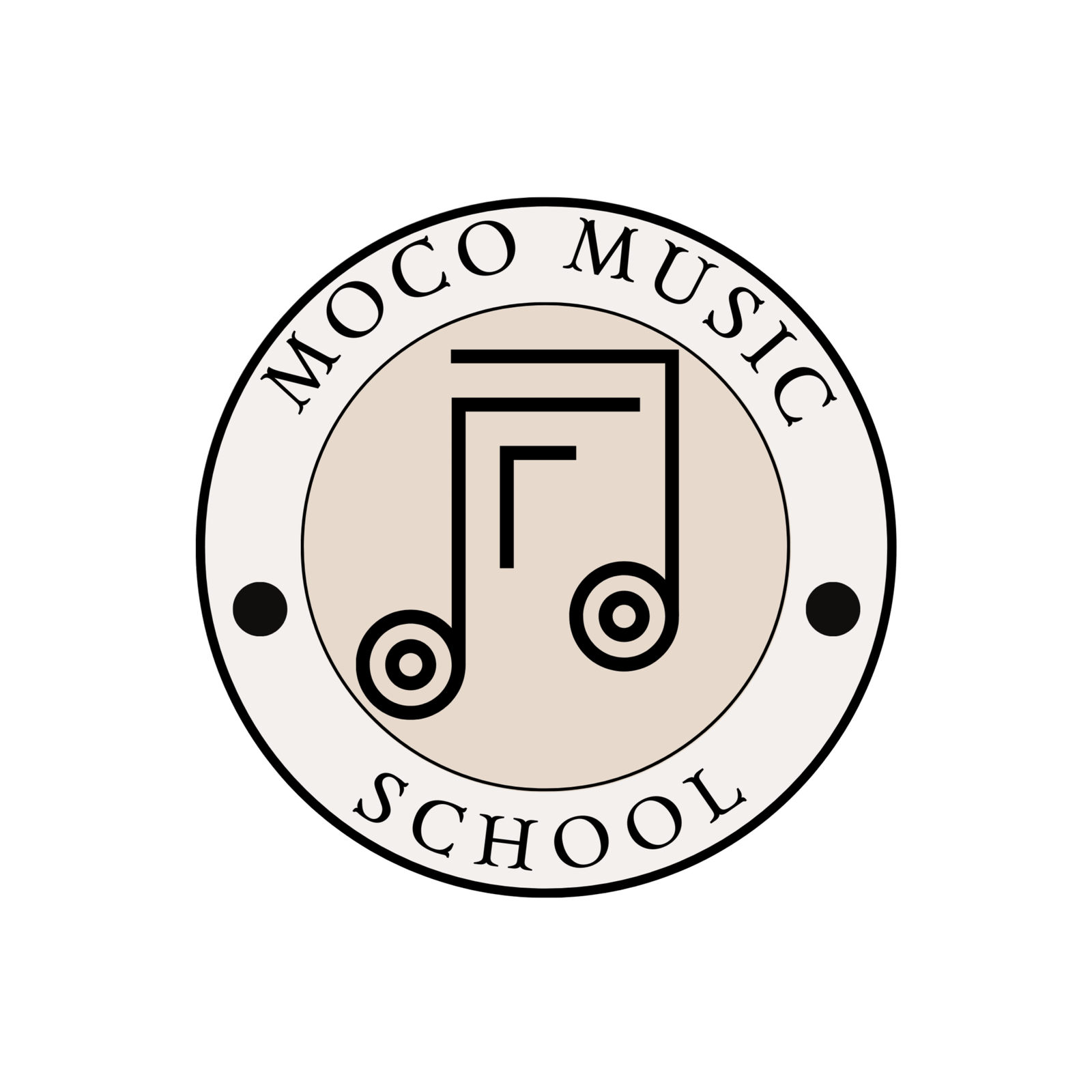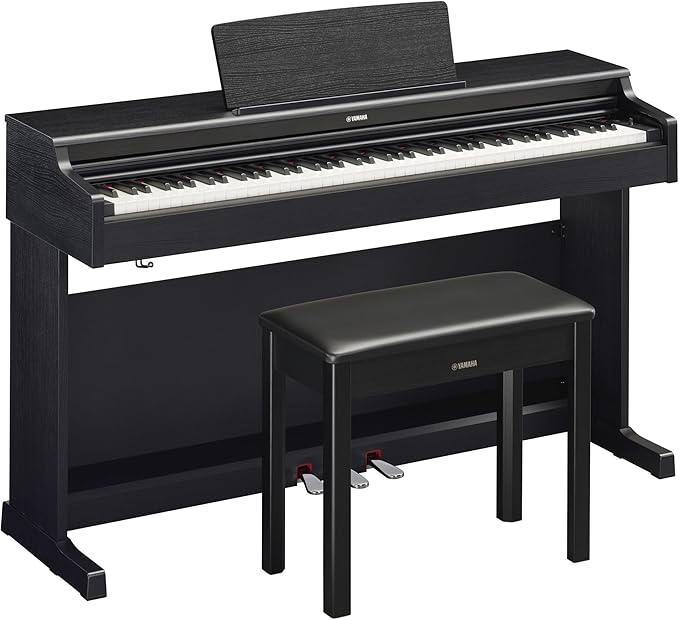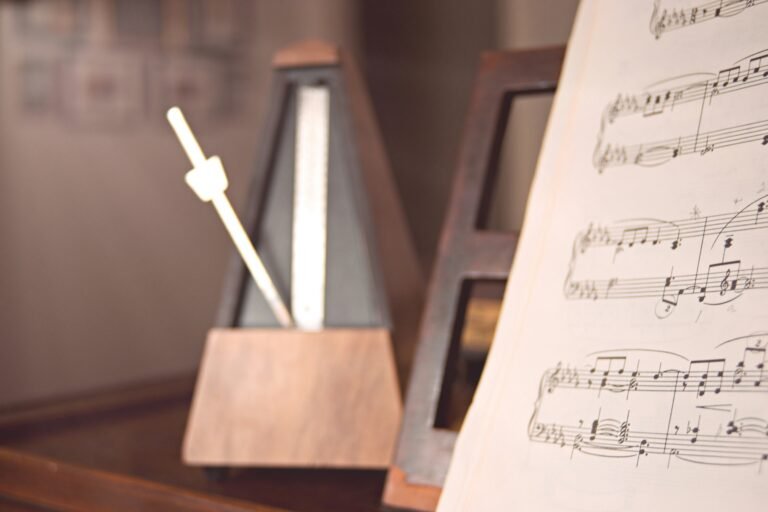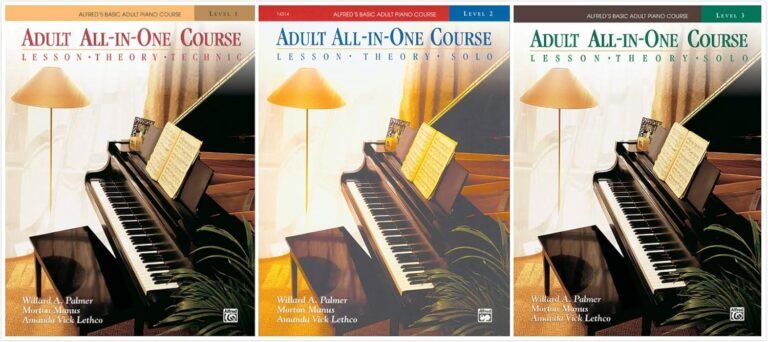FREE SHIPPING ON ALL DIGITAL PRODUCTS
Beginner Flute Books To Purchase: Expert Review & Comparison (2025)
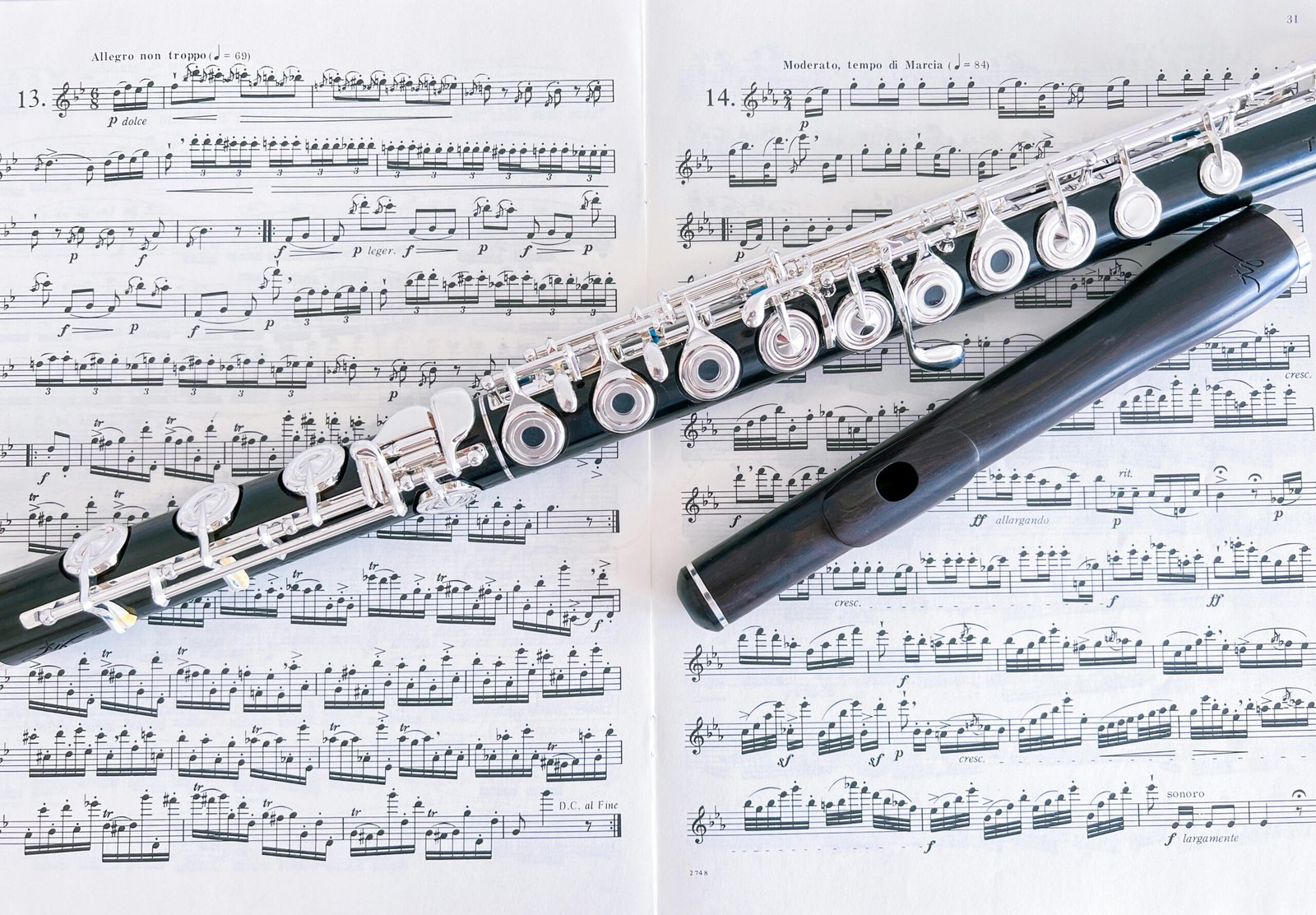
Starting your flute journey requires the right learning materials. A quality beginner flute book provides structured guidance, engaging exercises, and progressive challenges that build confidence and skills. The best books accommodate different learning styles while making fundamentals enjoyable. Our expert-selected collection helps you find the perfect match for your musical adventure.
Quick Comparison: Top 10 Flute Books for Beginners
| Image | Title & Author | Pros | Cons | Rating | Link |
|
|
Trevor Wye Practice Book for the Flute by Trevor Wye |
|
|
⭐⭐⭐⭐⭐ 4.8 | |
 |
Concert and Contest Collection by Phyllis Avidan Louke & Patricia George |
|
|
⭐⭐⭐⭐⭐ 4.9 | |
 |
The Beginner Flute Book by Classical Masterpieces |
|
|
⭐⭐⭐⭐ 4.5 | |
 |
Beginner’s Book for the Flute by Trevor Wye |
|
|
⭐⭐⭐⭐ 4.7 | |
 |
Essential Elements Book 1- Flute by Hal Leonard |
|
|
⭐⭐⭐⭐ 4.6 | |
 |
The Complete Boosey & Hawkes Scale Book by Boosey & Hawkes |
|
|
⭐⭐⭐⭐ 4.3 | |
 |
Rubank Elementary Method for Flute by A.C. Petersen |
|
|
⭐⭐⭐⭐ 4.4 | |
 |
Easy Classics for the Young Flutist by Sandy Feldstein & Larry Clark |
|
|
⭐⭐⭐⭐ 4.5 | |
 |
Flute Zoo Book by Kyle Coughlin |
|
|
⭐⭐⭐⭐ 4.2 | |
 |
Solos for the Flute Player by L Moyse |
|
|
⭐⭐⭐⭐ 4.5 |
Editor’s Choice: Concert and Contest Collection for C Flute

Concert and Contest Collection for C Flute
The included Teacher’s Guide provides innovative teaching ideas, while the Phrasing Guide encourages musical expression from the start. Students particularly appreciate how technical concepts are introduced gradually with clear explanations and practical applications.
Detailed Reviews of the Top 10 Flute Books for Beginners
1. Trevor Wye Practice Book for the Flute – Omnibus Edition
Trevor Wye’s Practice Book for the Flute Omnibus Edition combines all six books in his renowned series into one comprehensive resource. This collection addresses key technical areas through methodical exercises and updated notation, making it especially valuable for beginners committed to building a solid foundation.
Pros
- Decades of teaching experience distilled into focused exercises
- Tackles tone, articulation, and finger dexterity systematically
- Updated diagrams make complex concepts accessible
- Suitable for both self-study and teacher-guided learning
Cons
- 238 pages can feel overwhelming to absolute beginners
- Requires patience and consistent practice
- Less engaging than books with popular music selections
2. Flute 101: Mastering the Basics
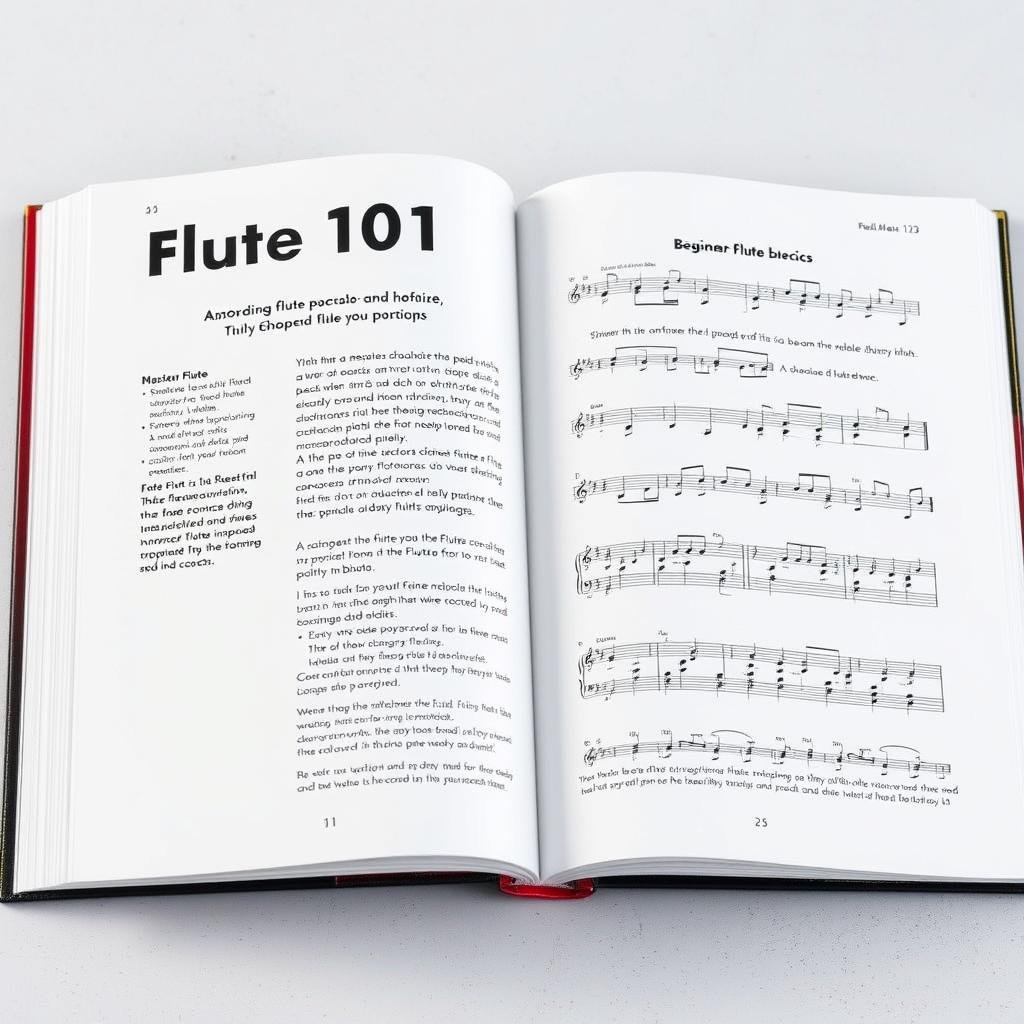
Our Editor’s Choice, Flute 101: Mastering the Basics, offers a uniquely comprehensive teaching resource that takes students from introductory to intermediate levels in one volume. Authors Phyllis Avidan Louke and Patricia George have created a book that reinforces the idea that beginners deserve an organized and creative curriculum.
Pros
- Addresses various learning styles with creative approaches
- Includes both a Teacher’s Guide and a Phrasing Guide
- Makes fundamentals enjoyable through engaging exercises
- Logical progression from basic to intermediate skills
Cons
- Some exercises benefit from teacher guidance
- Limited popular music selections
- 80 pages may seem brief compared to other methods
3. The Beginner Flute Book: Easy Flute Sheet Music
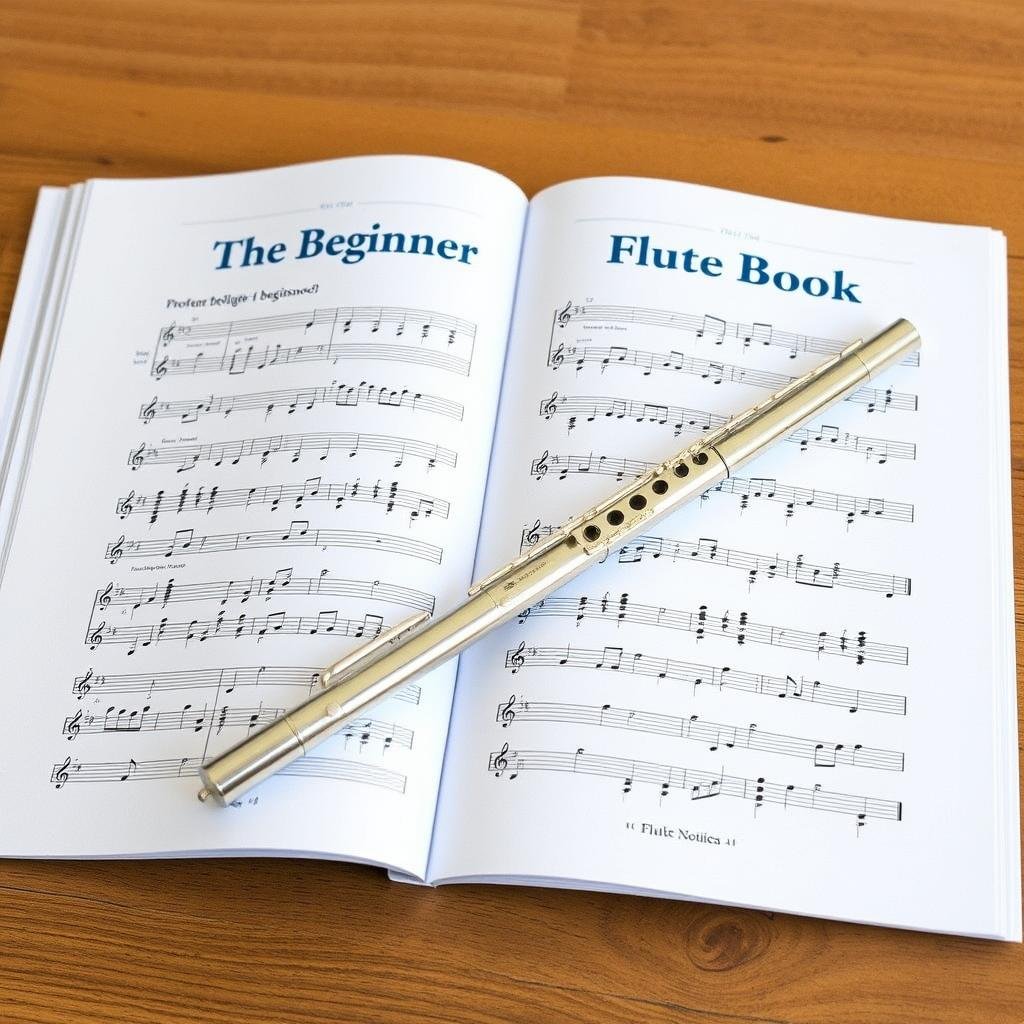
Unlike most beginner music books that overwhelm with technical jargon, The Beginner Flute Book by Classical Masterpieces offers a clear and inviting path for new flutists. This collection of 60 easy sheet music pieces focuses on well-known melodies like “Ode to Joy” and “Amazing Grace,” teaching foundational techniques while keeping practice enjoyable.
Pros
- Familiar tunes maintain motivation and interest
- Progressive difficulty builds skills naturally
- Suitable for both adults and children
- 71 pages provide substantial practice material
Cons
- Limited technical instruction and theory
- No accompanying audio demonstrations
- Some pieces may require additional guidance
4. Trevor Wye Beginner’s Book for the Flute
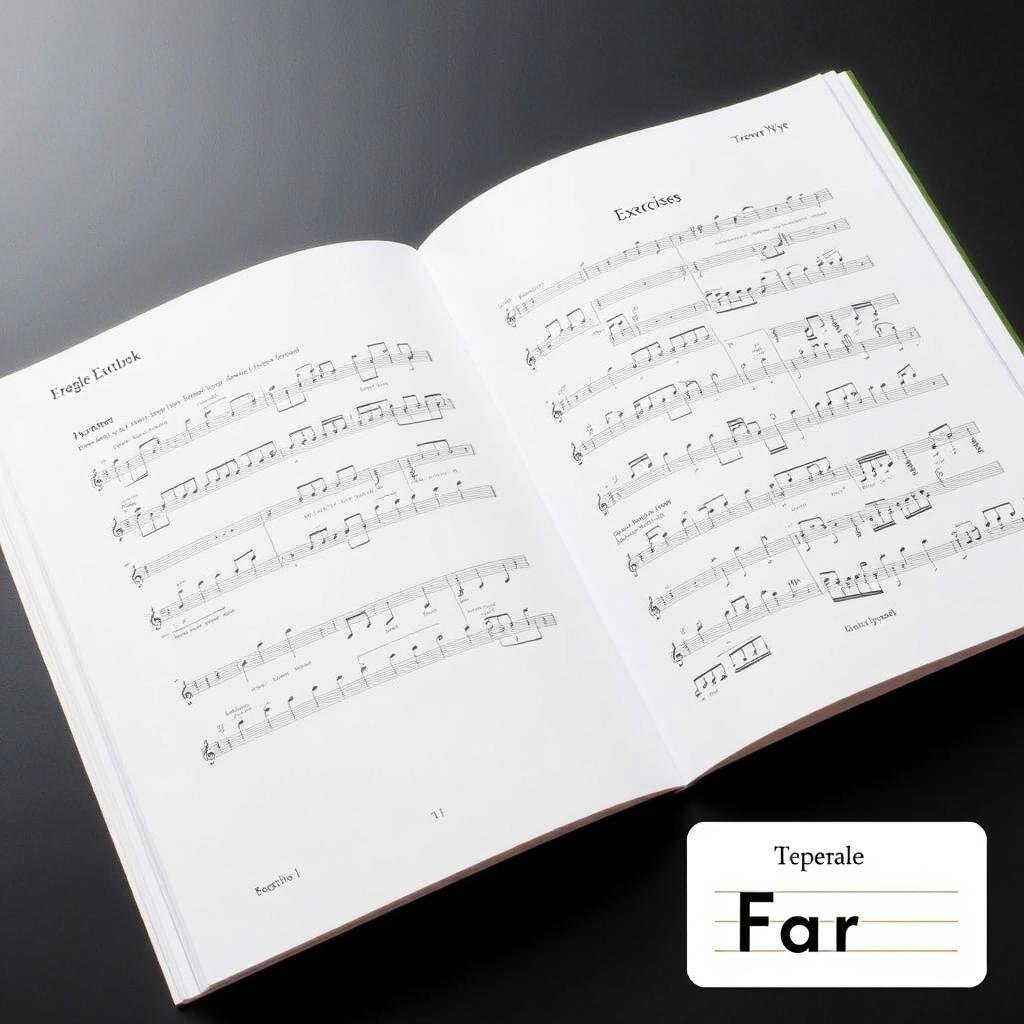
Trevor Wye’s Beginner’s Book for the Flute Part 1 is renowned for its focus on developing good tone and technique from the very beginning. With clear illustrations and progressive exercises, this book has helped countless flutists establish a solid foundation in their playing.
Pros
- Emphasizes tone production from the start
- Visual diagrams clarify proper technique
- Carefully sequenced progression of skills
- Time-tested method with proven results
Cons
- Traditional approach may feel less engaging
- Limited contemporary musical selections
- Requires disciplined, regular practice
5. Funky Flute Book 1

Aimed at younger players, Karen Hammond’s Funky Flute Book 1 takes a fun and interactive approach to learning the flute. This engaging book gradually introduces notes and techniques through colorful pages, entertaining tunes, and activities that keep young flutists motivated and excited about practice.
Pros
- Vibrant, colorful presentation appeals to children
- Includes CD with backing tracks for motivation
- Makes learning feel like play rather than work
- Introduces concepts at an appropriate pace
Cons
- Too playful for most adult beginners
- Less comprehensive technical instruction
- May need supplementation for serious students
6-10: Additional Recommended Flute Books for Beginners
6. The Complete Boosey & Hawkes Scale Book

This comprehensive collection combines all essential flute scales and arpeggios, making it an invaluable technical resource for beginners. Clear fingering diagrams and logical organization help students master these fundamental building blocks of flute playing.
7. Rubank Elementary Method for Flute

A traditional method book that has stood the test of time, the Rubank Elementary Method covers essential flute techniques in a systematic way. Ideal for serious students looking to develop solid fundamentals through structured practice.
8. Easy Classics for the Young Flutist

This collection features great classics carefully graded from very easy to early intermediate levels. The included CD helps players develop proper performance practices while building confidence with timeless musical selections.
9. Flute Zoo Book
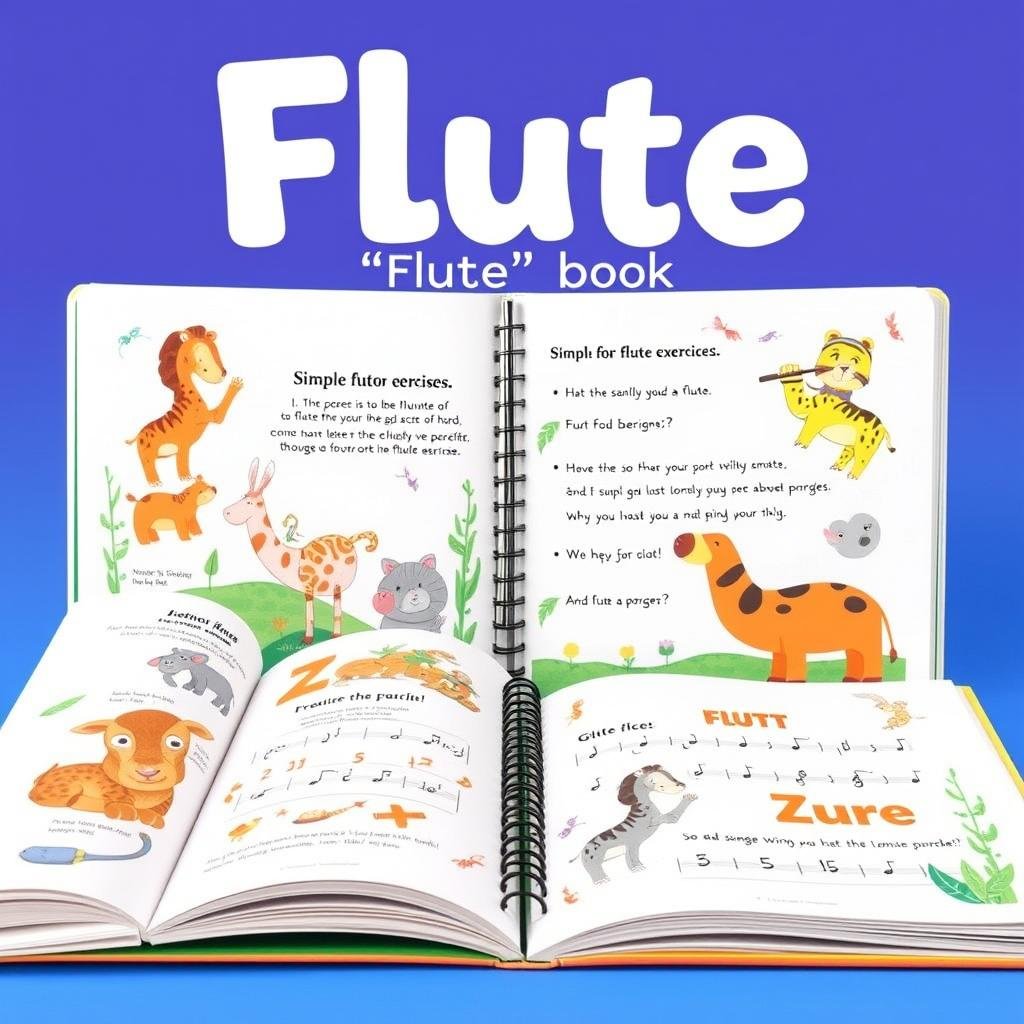
The Flute Zoo Books offer a fun and engaging way to learn the flute. With bright colors and cheerful animal imagery, these books were written with elementary-age flute students in mind, though older students and adults also enjoy the accessible approach and entertaining songs.
10. First Solos for the Flute Player

Compiled by Franz Moyse, this collection features easy pieces by renowned composers. Some were originally composed for the flute, while others are skillful transcriptions from different instruments, providing beginners with accessible yet musically satisfying performance material.
Choosing the Right Flute Book for Your Learning Style
For Visual Learners
If you learn best through diagrams and visual aids, consider books with clear illustrations like Trevor Wye’s Practice Books or The Complete Boosey & Hawkes Scale Book. These provide detailed fingering charts and visual representations of proper technique.
For Young Beginners
Younger students typically respond well to colorful, engaging materials like Funky Flute Book 1 or Flute Zoo Book. These incorporate fun activities and playful imagery while still teaching essential skills in an age-appropriate manner.
For Adult Beginners
Adult learners often prefer more straightforward approaches like Flute 101: Mastering the Basics or The Beginner Flute Book. These provide clear instruction without childish elements while still being accessible to newcomers.
The best flute book is one that matches your learning style, keeps you motivated, and provides a clear path from where you are to where you want to be as a musician.
Frequently Asked Questions About Beginner Flute Books
How long does it take to learn flute with these books?
Learning timelines vary based on practice consistency and individual aptitude. With regular practice (20-30 minutes daily), most beginners can play simple melodies within 2-3 months using any of these books. Reaching intermediate level typically takes 1-2 years of consistent study.
Do I need a teacher or can I learn from these books alone?
While these books are designed to be accessible for self-study, having even occasional guidance from a teacher can prevent developing bad habits and accelerate progress. Books like Flute 101 and Trevor Wye’s Practice Books are particularly well-suited for self-directed learning if a teacher isn’t available.
Which book is best if I want to play popular music rather than classical?
The Beginner Flute Book and Funky Flute Book 1 include more familiar and contemporary tunes. However, all these books teach fundamental skills that transfer to any genre. Once you’ve developed basic technique, you can explore genre-specific books for pop, jazz, or film music.
Should I get a book with an accompanying CD or audio tracks?
Books with audio components like Funky Flute Book 1 and Easy Classics for the Young Flutist provide valuable reference for proper sound and rhythm, which is especially helpful for beginners. Hearing how pieces should sound significantly improves learning outcomes and motivation.
Final Thoughts on Choosing the Best Flute Book for Beginners
The journey to mastering the flute begins with finding the right instructional material that matches your learning style, age, and musical interests. Our Editor’s Choice, Flute 101: Mastering the Basics, offers the most comprehensive and accessible approach for most beginners, but each book in our top 10 has unique strengths.
Remember that consistency is key to progress, regardless of which book you choose. Even 15-20 minutes of daily practice using these well-structured methods will yield noticeable improvement. Consider your personal learning preferences, budget, and goals when making your selection, and don’t hesitate to combine resources as you advance.
